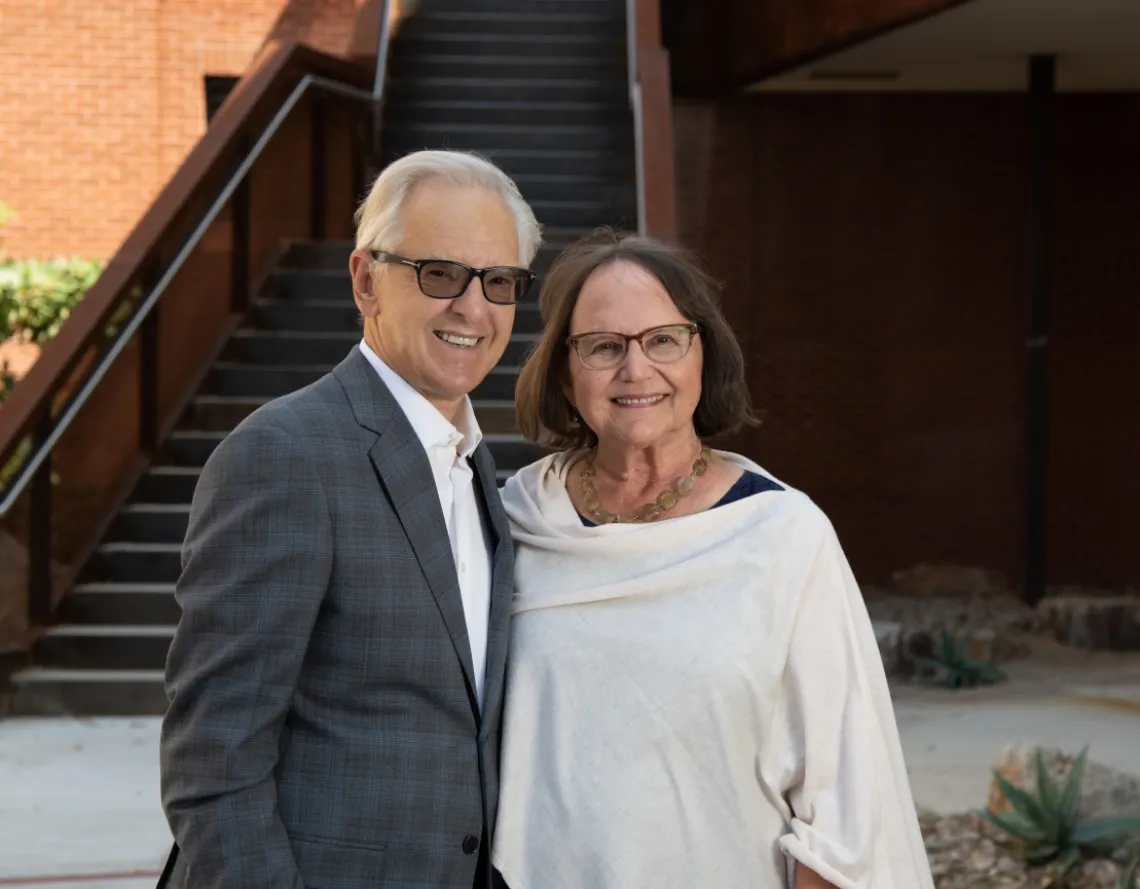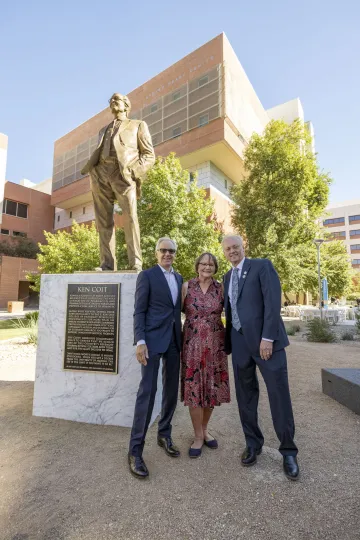Coit commits $5M to hire faculty, expand vision at UArizona Coit College of Pharmacy

Entrepreneur and alumnus R. Ken Coit has committed $5 million through his family foundation to bolster the University of Arizona R. Ken Coit College of Pharmacy as a trailblazer in pharmaceutical education, research and innovation.
With the gift, the Coit College of Pharmacy will hire five junior faculty members and expand the work of the Coit Center for Longevity and Neurotherapeutics. Established in 2023, the center's mission is to foster new discoveries and therapeutics that promote longevity and health span.

"The average life span has doubled over the last century, accompanied by dramatic increases in the incidence of age-related neurological disorders, including Alzheimer's disease, Parkinson's disease and amyotrophic lateral sclerosis," said University of Arizona President Robert C. Robbins, MD. "Ken's continued support will allow the Coit College of Pharmacy to advance the science of healthy longevity and pursue new therapeutics for some of our most devastating age-related diseases."
Coit, a member of the College of Pharmacy's advisory board, has been a stalwart supporter of the college for more than 50 years. In 2021, his $50 million naming gift was used to establish endowed faculty positions and student scholarships and to renovate the Coit History of Pharmacy and Health Sciences Museum.
"We are immensely grateful for Ken's inspiring acts of generosity, which continue to fuel our mission," said Rick G. Schnellmann, dean of the Coit College of Pharmacy. "His gift will allow us to support more early-career faculty – the researchers of tomorrow who will carry the torch and advance our groundbreaking research in drug discovery, aging and neurodegeneration therapeutics to improve patient care for future generations."
The Coit College of Pharmacy is one of the top pharmacy schools in the country. It recently was ranked No. 4 in the annual Blue Ridge Institute for Medical Research Rankings.
"My dream is to see the college established as one of the top three programs in the country," said Coit, who graduated from the College of Pharmacy in 1967 with a Bachelor of Science in pharmacy and briefly worked as a pharmacist before moving to investing and financial planning.
In recent years, Coit and his family have committed to fund six new endowed faculty chairs at the College of Pharmacy with a focus on rewarding research and excellence in teaching. They also committed $2 million in 2016 to the Skaggs Challenge, an initiative that helped the college expand and renovate the Skaggs Pharmaceutical Sciences Center, which is the building that houses the college. Including this new gift, Coit has donated more than $70 million to enhance pharmacy education at the university.
"Investigating and solving critical health care problems is at the heart of our mission at the University of Arizona Health Sciences," said Michael D. Dake, MD, senior vice president for the University of Arizona Health Sciences. "Ken's ongoing support and the faculty members who will benefit from his gift are vital to allowing us to meet our goal of building healthier communities for all."
"Ken's commitment to advancing pharmacy education and research at the university is commendable," said John-Paul Roczniack, president and CEO of the University of Arizona Foundation. "His contributions to the college make him an exemplary alumnus for not only giving of his time but also investing so generously in the college’s future as an incredible partner to the university."
The Coit gift is part of the Fuel Wonder campaign, the university's $3 billion fundraising effort. Gifts already made to the campaign are: giving every student access to a cohesive ecosystem of support, powering new insights into the human immunome, and transforming research in areas including cancer, engineering, space sciences and the humanities.
A version of this story originally appeared on the University of Arizona News website.

